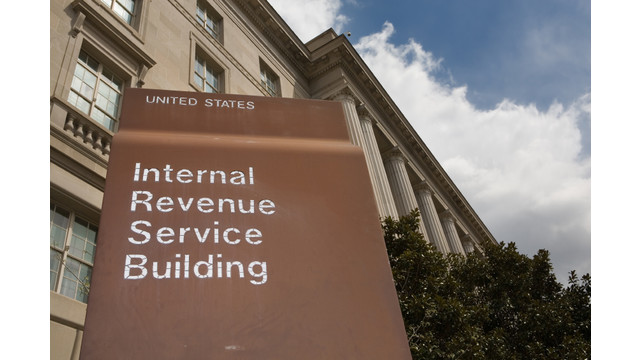Taxpayers are afforded certain rights when dealing with the IRS, and these are listed in the Taxpayer Bill of Rights. One states that a taxpayer has the right to retain representation. Additionally, the Internal Revenue Code stipulates that a taxpayer may, at any time during an audit or interview, request to consult with any person that is permitted to represent taxpayers before the IRS. According to Circular 230, tax professionals are required to represent a taxpayer vigorously. A vigorous representation is one that is strong, proactive, and energetic. The IRS is notified that a person is representing a taxpayer through the completion and filing of IRS Form 2848 Power of Attorney and Declaration of Representative.
Representation begins when the taxpayer contacts your office. It is important to keep this in mind as you begin a dialogue with the taxpayer. Until there is a good understanding of the issue, it is best not to draw conclusions or provide definitive advice to the taxpayer, even if he or she presses you for it. Whether representation will continue will be a mutual decision between you and the taxpayer and may be severed at any time by either party.
The Internal Revenue Manual, or IRM, provides IRS employees with the procedures and tools they should follow and use. For tax professionals who represent taxpayers before the IRS, it is an advantage to become familiar with some of the more common IRM provisions that are used on a regular basis, so that they can be pointed out to IRS employees during an audit.
Within Part 4 (Examining Process) of the IRM are the rules and procedures an IRS examiner follows when by-passing a Power of Attorney. If the examiner determines that the representative is not complying with their requests and that there is someone more knowledgeable, which includes the taxpayer, they can by-pass the representative. While the decision to initiate a by-pass is up to the examiner and their manager, the actual by-pass must be done with the approval of the Territory Manager. Prior to obtaining permission to by-pass a POA, the examiner is required to document in the case file by noting when and whether the representative has failed to submit records or information requested by the employee, failed to keep scheduled appointments, or failed to return telephone calls and written correspondence. Only when a trend has been noted can an examiner request a by-pass. The failure to return a single telephone call is not grounds for by-passing. Examiners may not by-pass a power of attorney until such time that the Territory Manager signs and issues the letter to the representative.
When a by-pass has been authorized, the IRS will send Letter 4020-A, Warning Letter for By-pass Procedures for Preparers covered under Circular 230, to the representative. This is normally signed and issued by the group manager. A copy is not sent to the taxpayer. Once a by-pass has been approved by the Territory Manager, Letter 4020-C, Final By-pass Letter, is issued and it should outline the facts and circumstances that form the basis of the by-pass.
Even if the IRS does officially by-pass the POA, this does not remove the representative from the audit – it only permits the IRS to contact the taxpayer directly. Copies of all correspondence to the taxpayer must still be sent to the representative, and the taxpayer can respond to those requests via the representative. A by-pass does not constitute a disbarment or suspension of the representative. The representative can continue to attend interviews if accompanied by the taxpayer, and the IRS should be informing the representative of any time and place for future meetings.
In some cases, if both the taxpayer and the representative are being deliberately uncooperative, the IRS may consider issuing an administrative summons to interview the taxpayer rather than by-passing a power of attorney. The IRS may also issue a summons when the representative refuses to provide information under attorney-client privilege so that the Court can determine whether the information is privileged or not.
While the manual reminds examiners and any other IRS personnel to check the CAF system for a power of attorney before contacting the taxpayer directly, it is not uncommon for IRS employees to send correspondence directly to the taxpayer without the representative being copied. Since the IRS can only by-pass a power of attorney after giving written notice to the designated representative, most seeming “by-passes” appear to be the result of missing this step in the process rather than being done deliberately. However, if an examiner continually or habitually does not copy the representative on correspondence or calls the taxpayer directly, this should be brought to the attention of the examiner’s manager. It is also important to remember that the IRS is only required to copy the representative on correspondence if the checkbox on Form 2848 is checked. While there are some notices that must be sent to the representative, the IRS is not obligated to copy all correspondence to the representative if the checkbox is not checked to request copies of the notices and communications.
When the IRS issues a by-pass letter to a tax practitioner, the IRS employee may consider referring the tax practitioner to the Office of Professional Responsibility, or OPR. The Office of Professional Responsibility is the section of the IRS that oversees any disciplinary action on tax professionals for violations to Circular 230. If the IRS believes the tax practitioner’s actions give rise to certain preparer penalties, the IRS is required to refer the tax professional to OPR. It is mandatory for the IRS to refer a tax practitioner to OPR when the following penalties are assessed:
- Willful or reckless conduct (IRC Sec. 6694(b));
- Aiding and abetting (IRC Sec. 6701);
- Promoting abusive tax shelters (IRC Sec. 6700);
- Action to enjoin Circular 230 practitioners who are also promoters of abusive tax shelters (IRC Sec. 7407 & 7408);
- Injunctive action under Sec. 7408 taken against an enrolled agent, CPA, or attorney.
When representing a taxpayer before the IRS, it is critical to contemporaneously document the date, time and any agreements or requests that were made during conversations with the taxpayer, IRS, and any other third party contacted. It is also important to document the date and time you send and receive documents or other correspondences. Having these records will protect not only the taxpayer but also yourself should a difficult situation arise between you and an IRS employee or taxpayer. Remember, representation is a two-way street. If a taxpayer you are representing is not cooperating and causing unreasonable delays in providing unprivileged information and documentation that the IRS has continually requested, you may need to evaluate if continuing to represent the taxpayer is in your best interest. It only takes one bad situation to undo a good reputation that took years to build.
=====
Dave Du Val is the Chief Customer Advocacy Officer for TaxAudit. At TaxAudit, he ensures that the entire team is on the forefront of tax education, research, best practices, and audit representation.
He is an Enrolled Agent and federally authorized tax practitioner, who has prepared thousands of returns during his career and has trained and mentored hundreds of tax professionals. He is a member of the National Association of Tax Professionals, the National Association of Enrolled Agents, and the California Society of Enrolled Agents. He is a frequent guest speaker for the California Society of Tax Consultants, the California Society of Enrolled Agents, and the National Association of Tax Professionals.
Thanks for reading CPA Practice Advisor!
Subscribe Already registered? Log In
Need more information? Read the FAQs





